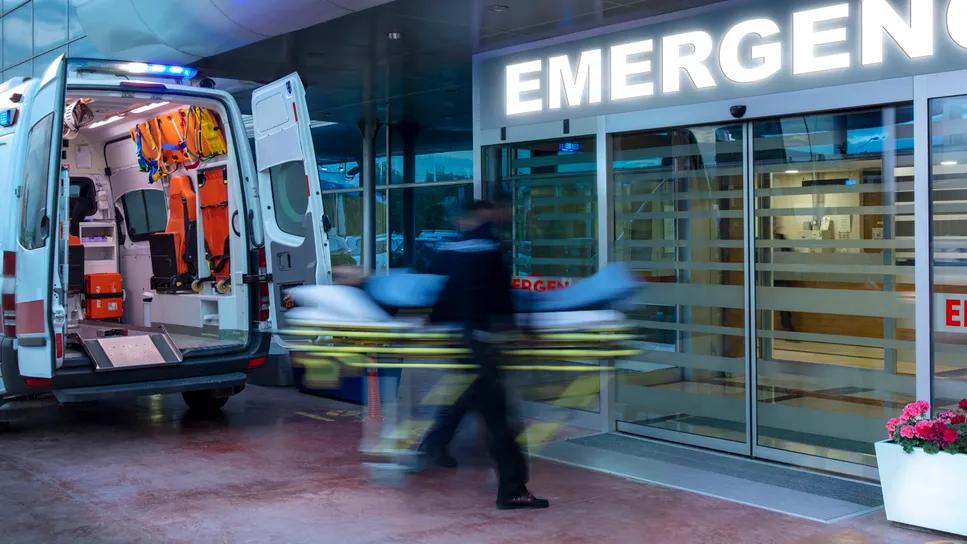Where did the patients go?

Cleveland Clinic emergency departments (EDs) saw a significant decrease in the numbers of patients experiencing suicidal thoughts and struggling with alcohol abuse during early days of the COVID-19 pandemic, according to a research letter recently published in the American Journal of Emergency Medicine. Investigators noted an overall 28% decrease in behavioral health visits at 20 Cleveland Clinic EDs and more than a 60% decrease in patients presenting with suicidal ideation relative to the same period in the prior year.
Advertisement
Cleveland Clinic is a non-profit academic medical center. Advertising on our site helps support our mission. We do not endorse non-Cleveland Clinic products or services. Policy
“These numbers are especially alarming because we actually expected these complaints to increase, given the additional stressors of a pandemic,” says co-author Baruch Fertel, MD, Director of Operations and Quality Improvement Officer for Emergency Services at Cleveland Clinic. “Mental illness doesn’t take a vacation. Where are these patients going?”
Researchers conducted a retrospective review to examine all behavioral health visits across 20 Cleveland Clinic EDs over a one-month period (March 25 through April 24, 2020) during Ohio’s state-mandated stay-at-home order for COVID-19. Cleveland Clinic EDs see more than three-quarters of a million patients each year, and researchers used the shared electronic medical record to identify behavioral health visits with ICD-10 codes and behavioral complaints. They compared these data with findings from the same time period in 2019.
Between 2019 and 2020, overall ED visits decreased by 44.4%, and behavioral health ED visits decreased by 28.0%. Patients presenting with suicidal ideation decreased by 60.6% and fell from 2.03% to 1.44% of overall ED encounters from 2019 to 2020.
“The number of patients presenting with suicidal ideation decreased in a greater proportion than we expected,” says Donald Malone, Jr., MD. “We must be vigilant in reminding our patients who might be afraid of visiting the ED because of COVID-19 that suicidal ideation is an emergency and that it’s safe to come to the ED for treatment.”
Researchers also found that the number of alcohol-related complaints decreased during the study period but increased as a percentage of total behavioral health ED visits, from 28.2 to 33.5%.
Advertisement
Efforts are underway to measure the overall suicide rate during this time period and to ascertain whether patients sought alternate treatment routes — telehealth, shelters or other venues. But the overall message to patients, physicians and other providers is clear.
“Please reach out to your patients struggling with behavioral health issues during this time,” says Dr. Malone. “Job loss, insurance issues and isolation can exacerbate existing issues, and whether it’s telehealth or in-person visits, check in on your patient’s mental health and remind them that it’s just like any other illness.”
“Patients should also know that we have special COVID-19 procedures in place in our emergency departments, so it is safe — in fact, necessary — for them to come if they are experiencing a mental health crisis like suicidal ideation,” says Dr. Fertel.
Advertisement
Advertisement

Swift, aggressive thiamin therapy may be key to preventing long-term neurological injury

Case underscores potential dangers of combining psychedelics with tranylcypromine and stimulant medications

Researchers explore how changes in the gut microbiome influence the brain's reward response to alcohol

Researchers explore new avenues for the management of psychiatric illness in patients with seizure disorders

Addiction experts use decades of research and clinical experience to help patients overcome substance use disorders

Specialized course helps APPs navigate clinical concerns and interpersonal skills

Comprehensive mental health screening may help prevent postsurgical risks

The reassuring potential of psychedelics for the management of substance use and treatment-resistant mental health disorders